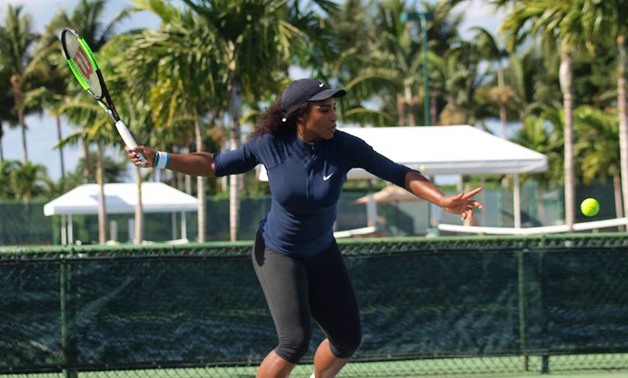
Serena Williams – Press image courtesy Serena Williams’ official Facebook page
LONDON – 29 September 2017 - Next year’s U.S. Open is set to allow coaching during matches but the man who guides Serena Williams has vowed to keep quiet for fear of making the 23-times grand slam champion too reliant on him in high-pressure situations.
Patrick Mouratoglou, who began coaching the American in 2012, went on to say that offering advice to the 36-year-old during matches could also stop her doing what she does best -- turn matches around.
The American in hoping to return to action in early 2018 following the birth of her first child last month and has not ruled out launching an audacious defense of her Australian Open title in January.
“I don’t want her to start thinking she needs someone to turn a match when she’s in trouble,” Mouratoglou told Reuters in an interview at the U.S. Open earlier this month.
“She’s been doing this better than anyone for 20 years. I don’t want her to start to think like this. It would hurt one of her main strengths and would be wrong.” On-court coaching -- where players can call their coach onto court once per set -- is currently allowed on the WTA Tour but not at the four grand slams or on the men’s ATP Tour.
At this year’s U.S. Open, players in singles qualifying were allowed to consult their coach -- from the stands -- between points and at the end of games, so long as they were ready for the next point.
Stacy Allaster, the United States Tennis Association’s chief executive for professional tennis, said during the event that she hoped to bring “mid-match coaching”, a shot-clock and time restrictions for the warm-up into the main draw events in 2018.
Mouratoglou said he felt discussing tactics with Williams during a match would not be beneficial, however.
“Imagine your player has the best forehand in the world and you would give technical advice on the forehand, they would start to think that maybe it’s not so good and it could hurt the forehand,” the Frenchman said.
“When it’s perfect I don’t touch it. Nothing is perfect but her way to change matches around is so close to perfect,” he added before saying there could be one exception.
”Maybe I would do it once in a while, if I feel she completely lost it,“ he said. ”Like during the (semi-final) match against (Roberta) Vinci (at the 2015 U.S. Open, when she was trying to complete the calendar year Grand Slam), maybe I would because I felt at some point that she was panicking.
“When she reaches that stage, she doesn’t have the keys anymore. But it happens (so rarely).”
Comments
Leave a Comment